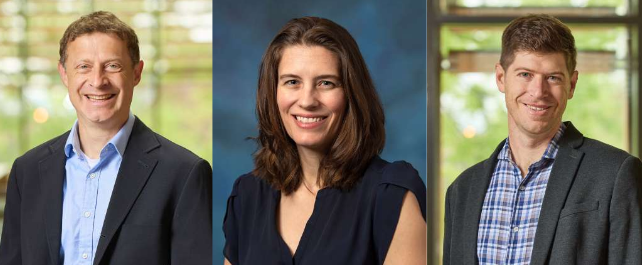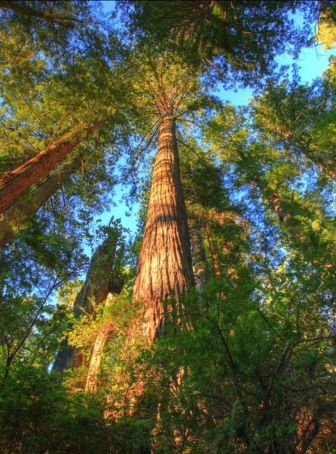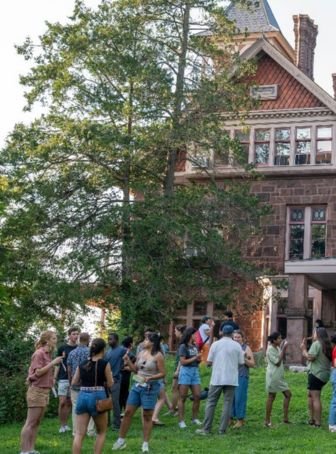
Join us online every Thursday from September 8 - December 8 from 11:30am-12:10pm US ET.
There are no webinars on October 20 and November 24.
Click here to register (link is external) once to attend all webinars and here for more information and recordings.
This fall, the Yale Applied Science Synthesis Program (YASSP (link is external)) is asking: what makes a high-quality forest carbon credit?
This Yale Forest Forum speaker series centers around the concept that forests store vast amounts of carbon in vegetation and soils and that humans may be able to protect, manage, and restore forested ecosystems to protect existing carbon while also stimulating faster and greater uptake of atmospheric CO2. However, there are various approaches to measuring, reporting, and verifying carbon storage.
Sara Kuebbing, research scientist at The Forest School at the Yale School of the Environment and research director of YASSP, explains that the idea for this speaker series came out of conversations within YASSP and with other Centers, Programs, and Initiatives at the Yale School of the Environment regarding the science of ecosystem management and managing forests for carbon sequestration. YASSP is a new research program at the School that produces quantitative, reputable scientific syntheses that guide and inform direct actions around land stewardship. YASSP is ultimately dedicated to generating the science – such as synthesizing the impact of different forest management options on forest carbon – that policy makers should use to design the most effective programs.
Kuebbing describes the voluntary U.S carbon market as attractive for corporations with net-zero emissions goals, identifying forests as a main credit source. Kuebbing and her team recognize that there is huge demand yet also a lot of discussion and critique of current forest carbon credit programs and the existing protocols that guide them. The conversation around carbon credits reaches beyond the biophysical elements and considers justice frameworks, morality, marketplaces and economics, ecosystem science, and more.
Through the convening function of the Yale Forest Forum, YASSP, YCNCC, and CBEY are bringing together experts and individuals engaged in current forest carbon markets from multiple points of view – policy, legal, science – to gain a deeper understanding of the diversity of thought around forest carbon credits. How do we promote good investments in forests? How do investors decide which credits are worth purchasing? How do we consider forest ecosystems as a whole, including the carbon capture power of soils?
From there, these organizations associated with The Forest School strive to determine our role as an academic institution in effectively contributing to the strong evidence-based science. Kuebbing describes the ethos of YASSP to be just this: “We want to engage in these conversations and understand where the pressing questions and needs are, where science can come in and provide objective and transparent answers to these questions. Our goal is to foster these discussions surrounding land management.”
This public speaker series and student seminar is co-taught by Assistant Professor of Environmental Policy and Governance Luke Sanford (link is external), Professor of Soils and Ecosystem Ecology Mark Bradford (link is external), and Research Scientist Sara Kuebbing (link is external) and is supported by doctoral student Reid Lewis ’20 MF. Brad Gentry (link is external), Frederick K. Weyerhaeuser Professor in the Practice of Forest Resources Management and Policy, and Frances Seymour (link is external), distinguished senior fellow at the World Resources Institute, are close advisors and contributors to the series.
Already, the series is gaining immense attention from students and practitioners. Lewis, who served as a post-graduate TFS Forest Fellow focused on forest carbon accounting at Yale Forests, is interested in how we measure the carbon benefit of forests and how climate-oriented forest markets – and policy – can empower holistic forest stewardship. We expect many students to participate with similar interests.

This speaker series’ instructors are Mark Bradford (left), Sara Kuebbing, and Luke Sanford.







